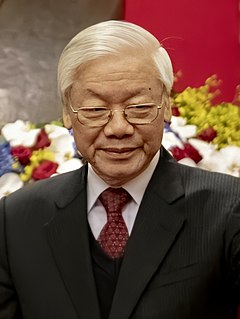A Quote by Peter Dicken
It remains to be seen, for example whether China can continue to develop as a market economy while still retaining an authoritarian communist political system.
Related Quotes
China has seen a great deal of economic progress. It's certainly rather of a miracle. The growing role of the market in the economy will force China to open up its political system over time and to move toward a more democratic society. So taken as a whole, the one real failure in this whole business has been Russia.
You cannot just depend on the market, because the market will say: China needs oil; China needs coal; China needs whatever, and Africa has got all these things in abundance. And we go there and get them, and the more we develop the Chinese economy, the larger the manufacturing is, the more we need global markets - sell it to the Africans which indeed might very well destroy whatever infant industries are trying to develop on the continent. That is what the market would do.
It's time to admit that public education operates like a planned economy, a bureaucratic system in which everybody's role is spelled out in advance and there are few incentives for innovation and productivity. It's no surprise that our school system doesn't improve: It more resembles the communist economy than our own market economy.
The China of the 1970s was a communist dictatorship. The China of the twenty-first century is a one-party state without a firm ideological foundation, more similar to Mexico under the PRI than Russia under Stalin. But the measurement of the political and the economic evolution has not yet been completed, and is one of the weak points of the system.
The same thing will happen in China that happened in Chile. Political freedom will ultimately break out of its shackles. Tiananmen Square was only the first episode. It is headed for a series of Tiananmen Squares. It cannot continue to develop privately and at the same time maintain its authoritarian character politically. It is headed for a clash. Sooner or later, one or the other will give.
I do not know what will happen in China politically. I do know that it is impossible to maintain the communist system or probably even a strict one-party system when the economy becomes so pluralistic. Now, what form that takes and what institutions will evolve, I do not have a clear view about. I do not think the United States, as a general principle, ought to intervene in this.
For thousands of years, China developed its own political system. Its rulers, no matter who they are, are given a conditional right to govern by the people. In the past, but even now it is called a "Heavenly Mandate". If the rulers fail to respect the will of the people, they get deposed. And the Communist Party of China is greatly respectful of the desires of the majority of the Chinese people.






























